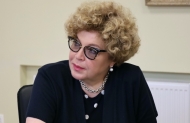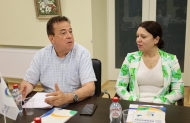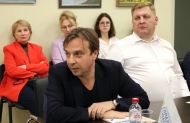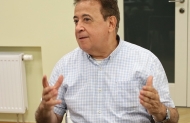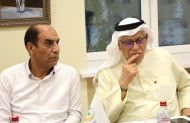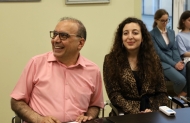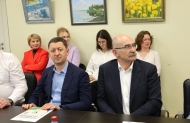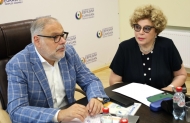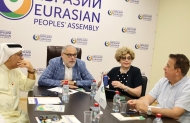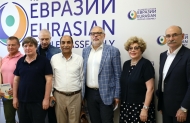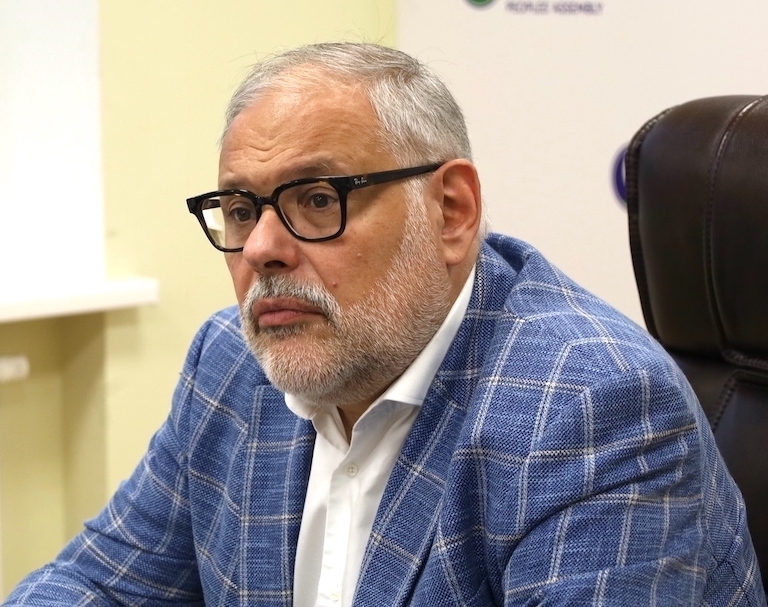
Today, July 26, at its headquarters in Moscow, the Eurasian Peoples' Assembly gathered representatives of 28 countries around the world to discuss issues of geopolitics and geo-economics on the eve of the second summit of the Russia-Africa Economic and Humanitarian Forum.
The participants in the discussion are partners of the Assembly from the International Association of Islamic Business, partners in humanitarian activities and forums, graduates of Soviet and Russian universities, members of the organization.
The main expert of the event was Mikhail Khazin, economist, head of the Committee on Economic Strategies of the Eurasian Peoples' Assembly. The moderator of the meeting was Yulia Petrova, Deputy Secretary General of the Eurasian Peoples' Assembly, Professor, PhD in Economics.
The meeting was held in a hybrid format.
Speaking about the current situation in the world economy and the US economy, Mikhail Khazin noted that the idea of their state today no longer corresponds to reality.
“A serious economic crisis has begun in the United States since the fall of 2021. They hid it for a very long time. In reality, they recognized it only last week, when the statistical data on the US industry came out. For the first time since the covid crisis, they admitted that the economy has “fallen” over the year - from June 2022 to June 2023,” the expert noted.
According to him, the crisis began in the fall of 2021, and the economic growth that was after covid was again replaced by an economic recession. In order to overcome the recession in the economy, the US needs to establish production.
“... But in order to produce something, you need to understand who will buy it. US domestic demand is completely exhausted. Attempts to make domestic production ends with a drop in the standard of living of the population. Domestic production is terribly expensive. In this situation, the US needs foreign markets that it can use to pull its own production. These are the markets that should start buying American products. It's not there yet, but it should be. This is the plan,” the economist said.
He also stressed that in case of refusal to implement this plan, in 10-15 years the United States may lose not only the status of the first country in the world, but also leave the top five countries.
“This is an absolutely objective economic situation. The only region of the world that suits them in terms of the task they have set for themselves is Southeast Asia. There is enough population there, these are people who know how to work,” Mikhail Khazin said, adding that the fulfillment of this task will lead to an aggravation of the situation in this region.
Of great importance, as the economist noted, today is the issue of preserving dollar assets:
“Until now, the entire world economy is a dollar economy. If the United States is deprived of the status of the world economic leader, then the issue of preserving dollar assets becomes a task of paramount importance for all countries ... And there are practically no non-dollar assets today. We live in a dollar economy. Today we are developing methods that can save assets, something else can be done.”
The expert stressed that if work in this direction is not started today, then in the fall the problems will increase like an avalanche, clearly denoting that "underneath this lies an absolutely objective economic situation."
“I believe that the key issue today is the creation of alternative financial models. We are doing this work, but this work is long, because we need to negotiate. This work is also collaborative. But salvaging assets is an individual job. Even if these are the assets of some country, it means that they are concentrated in some kind of fund that someone manages, and this someone, if the assets disappear, will be responsible for it. And we urge everyone to think about how to save these assets,” Mikhail Khazin said.
Professor of Cairo University, financial consultant of state and commercial structures of Egypt, ex-Minister of Labor of the Arab Republic of Egypt, Head of the Representative Office of the Eurasian Peoples' Assembly in Egypt, Dr. Nour Nada, participating in the discussion in Moscow, expressed doubt that the United States would begin to aggravate the situation in the - East Asia.
“The situation still needs to be observed and analyzed. We need to think more about this,” Nur Nada said.
Participants focused on issues related to the changing role of Africa in the geopolitical and geo-economic world. According to Mikhail Khazin, today Central Africa is becoming part of the Eurasian currency zone, and South Africa may become part of the Latin American zone, but some of the South African countries may enter the Indian currency zone:
“Central Africa is becoming part of the Eurasian currency area. A large association is formed, which can act as a single entity in terms of competitive interaction with alternative currency zones. I think that South Africa, centered on South Africa, will become just part of the Latin American zone - the border of Angola and Mozambique - the former Portuguese colonies. But with one exception - Tanzania and Mozambique can enter the Indian currency area.
Answering a question about the significance of the second Russia-Africa summit, which will begin its work on July 27 in St. Petersburg, the economist noted that its "key task is to establish contacts for the future creation of a wide Eurasian currency area".



